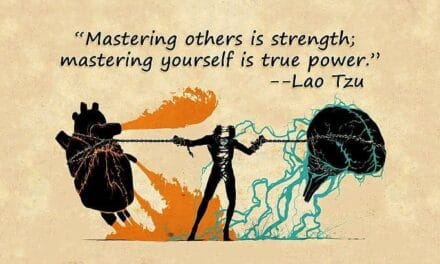The importance of continuous personal and professional development in tech cannot be overstated, particularly in an era where technology evolves at breakneck speed. Did you know that nearly 90% of executives believe that continuous learning is crucial for future business success? As the landscape of technology shifts—from the rise of artificial intelligence to the growing demand for cybersecurity experts—tech professionals must remain adaptable and proactive in their learning journey. This blog post will explore the myriad benefits of continuous development, key areas to focus on, and strategies to overcome the barriers many face. Whether you’re an established leader or just starting your career, understanding how to cultivate a mindset of lifelong learning is essential for thriving in the dynamic tech industry.
Why Continuous Development is Vital in Tech
The technology landscape is in a constant state of flux, making the importance of continuous personal and professional development in tech more critical than ever. Here are a few reasons that underscore this necessity:
Rapid Technological Advancements
With innovations like artificial intelligence, machine learning, and cloud computing transforming industries, tech professionals must keep their skills up-to-date. Continuous development helps individuals:
Adapt to new tools and technologies
Stay competitive in a rapidly evolving job market
Anticipate and respond to industry changes effectively
Changing Market Dynamics
The tech industry is characterized by its swift pace, often dictated by consumer demand and emerging trends. Professionals who engage in ongoing education can better:
Understand market shifts and their implications
Tailor their skill sets to meet the evolving needs of employers
Position themselves for new opportunities and career advancements
The Impact of Skill Gaps on Career Growth
Failing to invest in continuous development can lead to skill gaps, which may hinder career progression. Some potential consequences include:
Decreased employability in competitive markets
Limited advancement opportunities within organizations
The potential to fall behind peers in knowledge and expertise
For instance, according to a report by LinkedIn, skills gaps are a significant concern for many companies, emphasizing the need for ongoing learning and adaptability in tech roles.
The bottom line is that embracing the importance of continuous personal and professional development in tech is essential for anyone looking to thrive in this dynamic field. By committing to lifelong learning, tech professionals can carve out a fulfilling and successful career path.
Benefits of Continuous Development
Understanding the importance of continuous personal and professional development in tech is not just about keeping up with the latest trends; it also encompasses various benefits that significantly enhance both individual capabilities and organizational performance. Let’s explore these key benefits.
Enhancing Adaptability and Resilience
The tech industry often requires quick pivots in strategy or technology adoption. Continuous development fosters adaptability by:
Encouraging a growth mindset
Providing exposure to diverse methodologies
Enhancing problem-solving skills through new experiences
This adaptability is essential for navigating challenges that arise in rapidly changing environments.
Boosting Job Performance and Innovation
Investing in personal and professional development directly correlates with improved performance and innovation. Key aspects include:
Application of new skills to current projects
Promotion of critical thinking and creativity
Increased efficiency through mastery of new tools
Organizations recognize that encouraging employee development leads to better output and innovative solutions.
Fostering Leadership and Team Collaboration
Continuous development isn’t limited to technical skills; it's also essential for soft skills that foster leadership and team dynamics. Such skills help in:
Building effective communication pathways
Encouraging teamwork and collaborative problem-solving
Preparing for leadership roles through enhanced emotional intelligence
According to a study by McKinsey, organizations that prioritize development see higher employee engagement and retention rates. This translates into strong teams that are better equipped to meet the needs of the business.
By acknowledging the importance of continuous personal and professional development in tech, individuals and organizations can harness these benefits to create a thriving workplace that is well-prepped for the future. For further insights on workforce development, consider visiting Google's Learning and Development page.
Key Areas for Continuous Development in Tech
Recognizing the importance of continuous personal and professional development in tech involves understanding the key areas that warrant ongoing growth. Given the unique challenges and opportunities within the tech sector, focusing on specific skills can enhance both individual careers and organizational success.
Technical Skills: Staying Ahead of Trends
Keeping up with technological advancements is crucial for tech professionals. Key technical areas to focus on include:
Programming Languages: Mastering new languages such as Python, JavaScript, or Go, which are consistently in demand.
Data Analytics: Gaining proficiency in tools like SQL, R, or Tableau to analyze data and derive actionable insights.
Cybersecurity: Understanding the principles of cybersecurity to protect sensitive information and infrastructure.
These skills are directly tied to the evolving nature of the industry, providing a solid foundation for career advancement.
Soft Skills: Communication and Leadership
Technical expertise alone isn't enough to thrive in tech. Developing soft skills is equally essential. Important soft skills to cultivate include:
Effective Communication: Articulating complex ideas clearly to non-technical stakeholders.
Leadership Ability: Inspiring and guiding teams towards shared goals while fostering a collaborative environment.
Emotional Intelligence: Managing one’s emotions and understanding others’ to enhance teamwork and conflict resolution.
By enhancing these soft skills, tech professionals build stronger relationships and drive better outcomes within their teams.
Personal Growth: Mindset and Emotional Intelligence
Continuous personal development plays a vital role in ensuring individuals are prepared for both career changes and personal challenges. Focus areas include:
Growth Mindset: Embracing challenges as opportunities for learning and development.
Self-Reflection: Regularly assessing one’s strengths and areas for improvement to pursue targeted personal goals.
Work-Life Balance: Developing strategies to manage stress and maintain well-being, which is crucial for sustained productivity.
Individual commitment to these growth areas significantly amplifies the impact of the importance of continuous personal and professional development in tech. By addressing both technical and soft skills alongside personal growth, professionals can position themselves for enduring success in their careers. For additional resources on professional development, visit Microsoft's Learning Platform.
Strategies to Foster Continuous Development in Tech
Emphasizing the importance of continuous personal and professional development in tech requires adopting proactive strategies that foster a culture of learning and growth. Here are several actionable approaches to encourage continuous development in the technology sector.
Embracing Lifelong Learning
Lifelong learning is a mindset that tech professionals should embody to remain competitive. Key strategies include:
Online Courses: Platforms like Coursera, edX, and Udacity offer courses on emerging technologies and skills.
Webinars and Workshops: These events provide insights into industry trends and practical skills from experts.
Certification Programs: Earning certifications in specialized areas (e.g., AWS Certified Solutions Architect or Certified ScrumMaster) enhances credibility and expertise.
By committing to lifelong learning, professionals can consistently update and expand their skill sets.
Leveraging Online Learning Platforms
Utilizing online resources streamlines the process of continuous development. Consider the following platforms:
LinkedIn Learning: Offers a vast library of courses tailored to technology and business skills.
Khan Academy: Provides free educational resources covering various tech concepts.
Pluralsight: Focuses on tech-related courses, particularly in software development and IT management.
Engaging with these platforms allows professionals to learn at their own pace while accessing diverse content tailored to their career goals.
Participating in Networking and Professional Associations
Building connections and collaborating with peers is essential for fostering development. Strategies might include:
Joining Professional Organizations: Groups like the IEEE or ACM offer access to resources, networking opportunities, and industry events.
Attending Industry Conferences: Conferences provide insights into current trends and the chance to meet thought leaders.
Engaging on Professional Forums: Platforms like GitHub or Stack Overflow enable tech professionals to collaborate, share knowledge, and receive feedback.
These networking opportunities amplify the importance of continuous personal and professional development in tech by fostering relationships that encourage growth and innovation.
By implementing these strategies, tech professionals can make significant strides in their personal and professional development journey, ensuring they stay relevant and effective in a constantly evolving industry. For further insights into learning resources, check out IBM's Skills Gateway, which offers comprehensive tools for continuous learning.
Overcoming Barriers to Continuous Development
Despite recognizing the importance of continuous personal and professional development in tech, many individuals encounter barriers that hinder their growth. Understanding these challenges and finding ways to overcome them is crucial for achieving long-term success.
Time Management Challenges
Balancing work, personal life, and learning can often feel overwhelming. To combat these challenges, consider:
Prioritizing Learning: Set specific learning goals and integrate them into your daily schedule.
Time Blocking: Allocate designated time slots in your calendar for focused learning or professional development activities.
Leveraging Micro-Learning: Engage in short, focused learning sessions that fit easily into your day, such as watching a tutorial during lunch breaks.
These strategies help manage time effectively, ensuring that continuous development remains a priority.
Limited Access to Resources
Access to quality learning resources can be a barrier for many professionals. Overcoming this may involve:
Utilizing Free Online Resources: Websites like Khan Academy and YouTube offer a wealth of free tutorials and courses.
Seeking Company-sponsored Training: Approach employers about funding for certifications, workshops, or courses related to your role.
Forming Study Groups: Collaborate with peers to share resources and insights while learning collectively.
Addressing resource limitations can open the door to valuable learning opportunities for tech professionals.
Personal Motivation and Accountability
Maintaining motivation can be challenging, especially when faced with busy schedules. To enhance personal accountability, consider:
Setting Clear Goals: Define specific, measurable objectives for your learning and development.
Tracking Progress: Use tools like Notion, Trello, or simple spreadsheets to document your learning milestones.
Finding an Accountability Partner: Collaborate with a colleague or mentor who can help you stay on track and motivated.
By recognizing and addressing these barriers, tech professionals can more effectively embrace the importance of continuous personal and professional development in tech. With strategic planning and support, individuals can cultivate a successful trajectory for their careers. For more insights on professional growth, visit IBM Training for an extensive range of resources.
Conclusion: Making Continuous Development a Priority
In a fast-paced industry like technology, understanding and acknowledging the importance of continuous personal and professional development in tech is essential for not only individual career advancement but also for the overall health of organizations. As technology evolves, so too must the skills and competencies of those in the field.
Recap of Key Points
To summarize the critical aspects of continuous development, consider the following:
Adaptability: Staying current with technological changes is vital for remaining relevant in the job market.
Skill Enhancement: Both technical and soft skills are crucial for success. Continuous learning improves job performance, creativity, and leadership capabilities.
Networking Opportunities: Engaging in professional associations and conferences can help build valuable connections and expose individuals to new ideas.
Call to Action
Now is the time to take action. Invest in your personal and professional development by committing to a learning journey that aligns with your career goals. Start by:
Setting aside regular time for learning each week.
Exploring online courses or certifications that fit your needs.
Actively seeking feedback from peers and mentors to identify areas for growth.
As you embark on this journey, remember that continuous development is not merely a career requirement; it is a pathway to personal fulfillment and professional achievement in the tech industry.
By prioritizing the importance of continuous personal and professional development in tech, you can position yourself as a valuable asset in an ever-evolving landscape. For more resources on lifelong learning, check out Cisco's Learning Network, which offers a plethora of educational opportunities.
The Role of Organizations in Supporting Continuous Development
While individual commitment to growth is vital, organizations play a crucial role in fostering an environment that recognizes the importance of continuous personal and professional development in tech. Creating a supportive culture enhances employee engagement and development, yielding significant benefits for both employees and the organization.
Implementing Learning and Development Programs
Organizations should prioritize establishing structured learning pathways, including:
Onboarding Programs: Comprehensive training for new hires that incorporates ongoing learning initiatives.
Continuous Education Funding: Offering financial support for employees to pursue courses, certifications, and conferences.
Mentorship Opportunities: Pairing less experienced employees with seasoned professionals who can provide guidance and insight.
These initiatives reinforce the value placed on employee development and create a culture of continuous improvement.
Fostering a Growth Mindset
Encouraging a growth mindset within the organization can significantly enhance continuous development efforts. Strategies to promote this include:
Recognition of Effort and Achievement: Celebrating both big and small wins to motivate further development.
Safe Spaces for Innovation: Enabling teams to experiment without fear of failure encourages creative problem-solving and learning from mistakes.
Regular Feedback Mechanisms: Implementing routine performance reviews that focus on growth opportunities rather than solely outcomes.
When organizations cultivate a growth mindset, employees are more likely to engage in self-directed learning and pursue continuous development actively.
Building a Knowledge-Sharing Culture
Organizations can further support continuous development by establishing a culture that values knowledge sharing:
Internal Workshops: Hosting regular training sessions led by team members on specific skills or trends.
Access to Learning Resources: Providing subscriptions to online learning platforms or libraries where employees can explore new topics.
Collaborative Projects: Encouraging cross-team initiatives that allow employees to learn from one another and share expertise.
By prioritizing initiatives that highlight the importance of continuous personal and professional development in tech, organizations not only empower their employees but also drive innovation and growth within their teams. For additional resources on fostering a learning culture, visit Salesforce’s Learning Hub, which offers tools and insights for organizational development.
Why is continuous development important in the tech industry?
Continuous development is crucial in the tech industry due to the rapid pace of technological advancements. As new tools and methodologies emerge, professionals must continuously update their skills to remain relevant and competitive. This ongoing learning not only enhances individual career prospects but also contributes to the overall success of organizations by fostering innovation and adaptability.
What are the best ways to pursue continuous development in tech?
There are numerous ways to pursue continuous development in tech, including enrolling in online courses, attending webinars, and participating in industry conferences. Professionals can also benefit from networking opportunities, joining professional organizations, and seeking mentorship to gain insights and guidance from experienced colleagues.
How can organizations support their employees' continuous development?
Organizations can support continuous development by implementing structured learning and development programs, offering financial assistance for courses and certifications, and fostering a culture that values ongoing education. Providing access to resources, creating mentorship opportunities, and recognizing employee achievements also play a significant role in promoting a continuous learning environment.
What challenges do individuals face in achieving continuous development in tech?
Individuals may face several challenges when it comes to continuous development, including time management issues, limited access to resources, and personal motivation. Balancing work responsibilities with learning opportunities can be difficult, and some may lack the necessary tools or support to pursue their growth effectively.
What are the key skills to focus on for continuous development in tech?
Key skills for continuous development in tech encompass both technical and soft skills. Technical skills can include programming languages, data analytics, and cybersecurity knowledge. Meanwhile, soft skills such as effective communication, leadership abilities, and emotional intelligence are equally important for career advancement and effective collaboration within teams.





